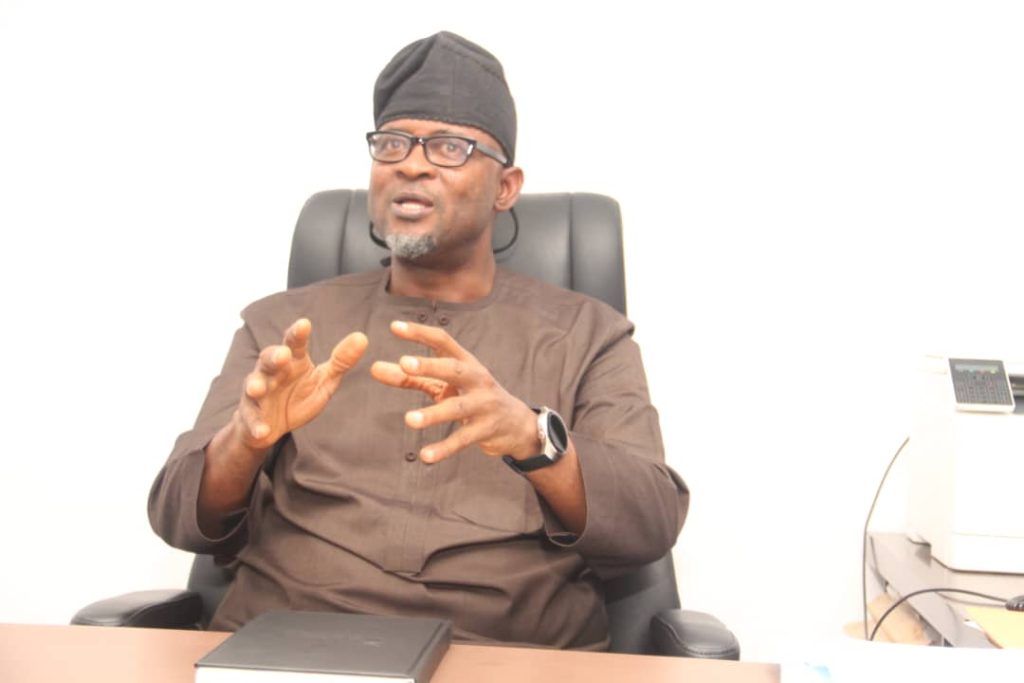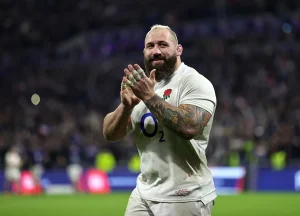Special focus on 5 most outstanding Chief Medical Directors in Nigeria (1)

The Chief Medical Directors (CMD), as the chief executive officers of teaching hospitals, are expected to ensure that their institutions deliver on their objectives, the most important of which is the delivery of quality healthcare services and training of medical practitioners.
They also bring to life the vision of the founding fathers of the institutions through the implementation of policies that engender productivity, professionalism and efficiency. As a result, in appointing the CMDs, persons who are considered are those who have distinguished themselves in terms of academic and administrative prowess in the medical profession.
These medical practitioners of international renown are also known to possess track records of excellence and integrity. It is on this note that Vanguard, in its first part of the series, is featuring two of the Most Outstanding CMDs in Nigeria.
My vision is to transform LUTH from tertiary to quaternary hospital – Prof Adeyemo, CMD
· Says hospital to perform first stem cell transplant for sickle cell patients Sept
· ‘I didn’t know what I wanted to be until…’
By Nnamdi Ojiego
Professor Wasiu Lanre Adeyemo is the Chief Medical Director, CMD, of Lagos University Teaching Hospital, LUTH. In this interview, the Ibadan, Oyo State-born Professor of Oral and Maxillofacial Surgery, speaks on his vision to transform LUTH from a tertiary to a quaternary health facility; the permanent cure for sickle cell anaemia, the ‘Japa’ syndrome and what the government is doing to halt the trend, among other issues. Excerpts:
Can we have an insight into your background?
Well, I came from a very humble background, so I didn’t know what I wanted to be until I got to secondary school when I joined science class. Then in secondary school, if you are in science class, you either become a doctor, a pharmacist or an engineer.
And so I applied to the University of Ibadan to study Dentistry between 1988 and 1995. It was supposed to be a six-year course but it turned out to be seven years because of strike actions and the June 12 crisis. After my NYSC, I worked in Katsina General Hospital for one year, and from there, I came to LUTH to specialize in Oral and Maxillofacial surgery.
I have been in LUTH for more than 20 years. I did my residency training from 1999 to 2004. From there, I proceeded to Germany for my PhD programme. I came back in 2006 to join the University of Lagos as a lecturer. I became a consultant in 2007. I became a professor in less than 10 years which is usually a record in the university.
I came to the University of Lagos in 2006 and became a professor in 2015, that’s nine years. In 2014, I became the Deputy Chairman, Medical Advisory Committee of the university, which I did for four years. In 2019, I became the Chairman, Medical Advisory Committee and the Deputy to the Chief Medical Director. By the special grace of God, I was appointed the CMD by the President in March 2023.
What would you describe as the greatest motivation for your career?
God! For those who believe in God, you know that there’s really nothing you can do without God. If God has destined you would be a medical doctor, you’re going to be.
So apart from God, the motivation is that towards the tail end of my medical school, I saw some of my senior colleagues who were already doctors, senior registrars and consultants, and they were young.
I looked at them and I wanted to be like them. And of course, when I started residency training, I also saw so many people who were mentors and I wanted to be like them. However, our intention then was just to be as good as one can be, and not necessarily that you want to hold any position in the hospital or the university.
Just a little above one year since you assumed office as the CMD, what would you say are the major challenges you are facing?
There are many challenges. LUTH is situated in an entity called Nigeria. So challenges of the country definitely must also affect the institution but if I have to be specific, among the many challenges, two are very important.
One, the issue of power, electricity. Without electricity, you cannot run an institution like ours anywhere in the world. Two, peculiar to us is the number of personnel that we have on ground. I don’t want to say anything more about the japa issue. But you know, there are basically two reasons why people leave the country for greener pastures.
One is infrastructure and equipment. The second one is economic. The money that they are giving to people here is not comparable to those outside the country. Those are the two major reasons, but the irony of our situation in the country is that in the last four, or five years, particularly the last year, the government is spending a lot of money in putting infrastructure in place.
The LUTH of 2019/ 2020 is quite different from the LUTH of 2023/2024. The government has increased allocation to the health sector in terms of putting infrastructure in place. A lot of renovations are taking place in the institution and equipment that we never thought of getting in years to come is being procured.
N200 million spent on power supply
However, I realized that the irony is that while the government is putting a lot of money into infrastructure, people are going away because of economic reasons, meaning that you are putting in infrastructure, but you now have fewer people to manage them. But the government is very much aware because, after the COVID-19 outbreak, the government realized that our health facilities need a lot of upgrades.
A committee has been set up to halt the ‘Japa’ trend and I believe that we are going to start seeing it in the next few months. There’s a need to empower people in terms of the amount of money they get, in terms of monthly salary, because they need to survive, and in terms of training, and putting structure in place for them to have a reason to stay in the country. And in terms of power, let me tell you, in this hospital, we pay an average of between N180 and N200m on power every month. However, it’s heartwarming to note that the government is putting a lot of money into the infrastructure, particularly the power.
They’ve also encouraged us to get renewable energy. If you go around the hospital now, we have installed over 300 solar-powered street lights around the hospital. Also, the government has provided the money for us to put solar power inverters into some critical areas in the hospital like in our emergency units, children and adults’ wards, blood bank, labour ward and theatre, among others.
We wish we had much more money than that, we would have covered virtually everywhere but I can assure you that the government is planning to give us more money to cover many areas with solar inverters.
We are also making plans as a hospital from the money allocated to us yearly, to make sure that at least 20/25% of our budget is put on solar power so that the hospital is going to be covered. I believe that the issue of power is going to be a thing of the past in the next year. Also, people do come here to support us.
They are non-governmental organizations, churches, mosques, and individuals who come here to ask what they can do for us as CSR. Somebody has agreed to cover about two or three of our wards with solar power apart from other things he has promised to do for us.
So what innovations have you brought on board in terms of research, training and development?
There are basically three objectives of the hospital, talking about its mandate as a teaching hospital are patient care, research, as well as education and training. Let me start with research because I’m a professor and a researcher, and I need to bring in some innovations to show who I am.
So when I came in, you know, LUTH is associated with the University of Lagos, without the University of Lagos, it would be a glorified general hospital. So the bulk of our researchers are professors and lecturers in the university.
Secondly, we also have resident doctors who are undergoing training to be specialists, and whether they want to specialize with West Africa College of Surgeons or West Africa College of Physicians, they must also do research. So what we have done is to empower them. For resident doctors, we have set up a research grant committee that is going to make funds between N2m and N3m available for them.
Prior to now, research conducted by a resident doctor is from their pocket, and there’s nowhere in the world where they do that. Research is sponsored. So we have made up our mind and set up the committee, and we have set all the criteria. Once people have met the criteria, they would get the grant.
That is the very first innovation that we brought in. When I was the deputy CMD, I introduced, for the very first time, the International Conference for LUTH. We started in 2020 and it is held annually.
So what do we do? We bring in researchers, and experts, locally and internationally, to come and give us symposium lectures relevant to what we are doing. Then also we ask people from all over the world to send abstracts, to come and make presentations.
I’ve also done that in terms of research. As we have more money, we are going to include other researchers in the hospital apart from resident doctors and consultants. We have about nine schools in LUTH and some of those students also do research. So that is what we have done in terms of research, training and capacity building.
Nuclear medicine
The government is giving us money this year to have cardiac catenation lab. The government is devoting about N1.5b for that. Don’t forget that LUTH, since 2019, has the best cancer centre not only in Nigeria but also in West Africa. Between 2019 and 2024, we’ve seen over 11,000 patients. So the federal government used that as a proof of concept between LUTH and NSIA, Nigerian Sovereign Investment Authority.
Believe me, it was a concept that nobody thought was going to work. Over the last four or five years, it has worked to the extent that the government is now using that model to establish an additional 10 cancer centres all over the country.
The very first question people were asking when it was commissioned by the president then was that you cannot have an international five-star cancer centre that is comparable to any part of the world without complementing it with nuclear medicine. Nuclear Medicine includes PET scans, spread scans, cyclotrons and so on, to aid diagnosis and also to monitor the patients to make sure that quality of life is better and also the survivor is also better.
In 2019 we thought it was something that would not be able to be achieved in 10 years but lo and behold, the government has also approved to be built at LUTH, a nuclear medicine centre. Also, Lagos has about 25 million people. Our facility needs to expand to go with that. LUTH was established in 1962 when the total Nigerian population was about 50m and I don’t think the population of Lagos State was up to five million then. Now, Lagos is about 25 million. So we need to expand to accommodate the growing population. What we have done is to build a new outpatient clinic that’s going to consist of about 252 clinic rooms across the road, opposite the LUTH main entrance.
It’s a big hospital entirely and we are already into phase two of the project and the money for the second phase is already in the budget. We are already constructing a skywalk, pedestrian bridge that connects the new outpatient clinic.
Old people home
Again, we need to take care of our elderly like it’s done in the US and other developed countries. Many Nigerians are surviving to old age, yes, life expectancy is coming up, therefore; we need to take care of our elderly. There’s a specialty in medicine called geriatrics.
So I also put it as part of my strategic plan and the FG has given us money to build a four-storey geriatric building for those who are elderly. We are also building a three-floor DOTS center. DOTS centre is where people who have tuberculosis are treated. There’s a special clinic for them. Furthermore, we have the biggest oncology ward, a 60-bed cancer ward, in Nigeria donated by the family of Mrs Iyabo Atta.
The centre is called Alima Atta Oncology Ward. In addition, the government has given us money to build a 30-bed ICU. This is going to be one of the biggest in any public hospital in the country. Before now, we have about eight bedded ICUs for a city of over 25 million and many times, patients who need ICU care don’t get it because of lack of space. In this year’s budget, funds have been approved for the renovation and face-lifting of the hospital walls. So before the end of this year, we are going to do renovations for the entire length of our front wall.
In terms of actualizing the vision and mission of this hospital, where do you hope to see LUTH at the end of your tenure?
Like I said earlier, I was not new to the management. When I became the CMD, I inherited the hospital that was taken from good to excellent. You can see I have a peculiar problem. So, I have no option but to leave LUTH better than I met it. We are a tertiary hospital; however, the mandate has been given to us by the Minister of Health, Prof. Mohammed Ali Pate, and Dr. Tunji Alausa, on behalf of the President, to transform our tertiary hospitals, particularly those that have existed for years like ABUTH, UNTH, among others, from tertiary to quaternary. We should be able to provide quaternary care and that’s what I want to achieve.
One, in terms of quaternary care, we are establishing LUTH Cardiac Catenation Laboratory. The government is giving us a budget for that. We also want to have an in-cancer management, nuclear medicine center. I also want to engender a partnership between us as a tertiary hospital and private hospitals in Lagos. So, we have signed MOUs with many private hospitals which have never happened before. We also have an MOU with the Sickle Cell Foundation. Let me talk about the Sickle Cell Foundation.
Before the end of September, we are going to do the first stem cell transplant for sickle cell patients in this hospital, that’s a known cure for sickle cell disease. We are collaborating with the Lagos State government and Vanderbilt Medical University in the US. We have recruited two patients and the treatment has started already. I also plan to resuscitate our cardiac and kidney transplant program.
2. I believe access to quality healthcare is a fundamental human right – Professor Darlington Obaseki, UBTH CMD
Chief Medical Director, University of Benin Teaching Hospital, Prof. Darlington Obaseki, in this interview on his recognition as one of the Outstanding Chief Medical Directors in Nigeria, says implementing efficient financial practices to ensure judicious use of resources is one of the major reasons UBTH has been able to maintain its high standard medical services over the years. Obaseki also highlights how medical tourism can be curbed, amongst others. Excerpts:
Kindly give us an insight into your background?
I am a professor of histopathology with extensive experience in medical practice, research, and administration. My medical journey began at the University of Benin where I obtained my MBBS degree in 1991. My passion for medical research and pathology led me to specialise in histopathology, earning me the Fellowship of the National Postgraduate Medical College of Nigeria (FMCPath) in 2006, and I became a professor of pathology in 2017.
Throughout my career, I’ve held key administrative roles, including serving as Head of the Department of Pathology, Deputy Chairman, and then Chairman of the Medical Advisory Committee. Since 2017, I’ve served as the Chief Medical Director (CMD) of the University of Benin Teaching Hospital (UBTH). My leadership journey has been enriched by participation in various training programmes, such as the AIG Public Leaders Programme at the University of Oxford. These experiences have shaped my ability to influence healthcare delivery, medical education, and research in Nigeria.
What would you describe as the greatest motivation for your career?
My greatest motivation stems from a deep-seated commitment to strengthening Nigeria’s healthcare system. I believe access to quality healthcare is a fundamental human right. This drives my efforts to improve patient outcomes, enhance medical education, and contribute to medical research.
The challenges within our healthcare system inspire me to develop and implement innovative solutions tailored to our unique context. Additionally, I am motivated by the opportunity to mentor the next generation of medical professionals, ensuring they are well-prepared to continue advancing healthcare standards.
What are the major challenges faced as the CMD at UBTH?
As the CMD of UBTH, I have encountered several challenges that are emblematic of the broader issues within Nigeria’s healthcare space. One of the primary challenges is the inadequacy of funding, which directly impacts our ability to maintain and modernise infrastructure, procure state-of-the-art medical equipment, and ensure the continuous education and training of our medical personnel.
The issue of skilled human resources for health is particularly pressing, exacerbated by the ‘Japa syndrome,’ where skilled healthcare workers emigrate in search of better opportunities, leading to a significant shortage of expertise within the hospital. Additionally, the downturn of the economy has further strained our resources, making it increasingly difficult to meet the healthcare demands of a rapidly growing patient population.
Our current infrastructure is struggling to meet the needs of this generation, necessitating urgent upgrades and expansions. While I continuously advocate for increased government support, it is clear that collaboration with the private sector and our colleagues in Diaspora is essential to bridge the gaps in funding and innovation. Addressing these challenges requires strategic foresight, effective resource management, and a collaborative approach to ensure that UBTH remains at the forefront of healthcare delivery in Nigeria.
What innovations have you brought on board in terms of research, training, and development since you assumed office as the CMD?
Upon assuming the role of Chief Medical Director, I initiated the development of the strategic plan, now in its second edition (2022-2025). This plan has guided innovations in research, training, and clinical services at UBTH.
A major focus has been the integration of advanced technology into our operations, including the establishment of a robust Electronic Medical Records (EMR) platform, which has significantly enhanced patient experience. In clinical services, we introduced advanced medical and surgical procedures, positioning UBTH as a leader in multi-specialty care.
These include Open Heart Surgery, Laser Lithotripsy, Dental Implantology, and Neurosurgical Minimal Access Surgeries such as Endoscopic Endonasal Surgery, Minimally Invasive Spine Surgery, and Stereotactic Surgery.
General Surgical Minimal Access Surgeries like Laparoscopic Cholecystectomy and ENT procedures such as Functional Endoscopic Sinus Surgery have also been introduced. International collaborations with institutions like RUSH Medical Center and Indiana University School of Medicine have bolstered our research capabilities and secured funding.
Staff training remains a priority, ensuring our personnel are up-to-date with the latest medical knowledge and skills. Development efforts include completing major infrastructure projects such as a Premium Ward, a state-of-the-art water purification system, and phased ward renovations. We have also constructed a sports complex, renovated the Accident & Emergency (A&E) theatre, and extended the hospital mortuary to accommodate increased capacity.
Notably, the Ossiomoh independent power plant has provided a triple layer of power security, ensuring uninterrupted operations across the hospital. A significant infrastructural milestone under my tenure has been the construction of a state-of-the-art Accident and Emergency (A&E) Centre, which is slated for commissioning in the fourth quarter of this year.
This facility is designed to meet the growing demand for emergency services and is equipped with cutting-edge technology to provide the highest standard of care. These innovations have not only elevated patient care but have also reinforced UBTH’s standing as a leading centre for medical research, training, and healthcare delivery in Nigeria.
UBTH is known for its high-quality medical services. How have you been able to maintain this high standard despite low funding from the government?
Maintaining UBTH’s high standards amid limited funding has required strategic financial management and resource optimisation. We’ve implemented efficient financial practices to ensure judicious use of resources.
Equally critical has been our focus on continuous staff development and fostering a culture of excellence. Investing in training and accreditation, including pioneering the Emergency Medicine residency programme, ensures our healthcare professionals deliver top-tier care consistently.
To meet and exceed national and international benchmarks, we adopted the SafeCare quality assessment framework from PharmAccess, providing a structured approach to improving clinical practices.
Recognising the importance of staff welfare in maintaining high performance, we’ve enhanced welfare programmes through our Cooperative scheme, creating a supportive work environment that sustains a motivated and dedicated workforce essential for high-quality healthcare delivery.
It has often been argued that medical personnel are not enough in the various health facilities across the country. What do you think needs to be done to remedy the situation?
Addressing the shortage of medical personnel in Nigeria requires a comprehensive and multilayered strategy. First, there needs to be a significant investment in medical education and training institutions to increase the number of graduates entering the healthcare workforce.
The government should also improve the working conditions and remuneration of healthcare workers to retain talent and reduce the brain drain phenomenon. Additionally, there should be a concerted effort to decentralise healthcare services, making rural postings more attractive through incentives and providing adequate infrastructure and support in those areas. Collaboration with international health organisations to facilitate the exchange of knowledge and skills can also play a crucial role in building a more robust healthcare workforce.
Annually, millions of dollars are expended on medical tourism by Nigerians who go abroad for medical services. How can medical tourism be reduced?
To reduce medical tourism, we must improve the quality of healthcare services available locally and increase public confidence in these services.
Investments in medical infrastructure and specialised care, particularly in areas like oncology and cardiology, are essential.
Public enlightenment programmes that highlight successful treatment outcomes in local institutions can build trust. Additionally, policies that incentivise the use of local healthcare services, such as broader health insurance coverage, can help curb medical tourism.
In terms of actualising the vision and mission of this hospital, where do you hope to see the University of Benin Teaching Hospital at the end of your tenure?
By the end of my tenure, I see the University of Benin Teaching Hospital (UBTH) as a leading centre of excellence in healthcare, education, and research across Africa. My goal is for UBTH to be recognised for cutting-edge technology, skilled professionals, and impactful research that contributes to global health.
Our strategic focus aligns with the 2022-2025 UBTH Development Plan, prioritising exceptional patient care and satisfaction. By continuously improving service delivery and ensuring exemplary patient experiences, we aim to exceed the expectations of those who rely on us. Equally, we prioritise staff welfare, fostering a motivated and well-equipped workforce through ongoing professional development and opportunities for career growth. A satisfied and skilled team is vital for maintaining UBTH’s high standards. Research and innovation are central to UBTH’s future.
I am committed to making UBTH a leader in medical research and solutions tailored to regional challenges. Strengthening collaborations with national and international institutions will enhance our academic reputation and improve clinical practices. Expanding specialist services is another key focus.
By advancing complex surgeries, diagnostics, and medical technology, UBTH will remain a referral centre of choice in Nigeria and beyond. Additionally, by integrating into national and global healthcare networks, UBTH will exchange knowledge and best practices, helping shape healthcare in Africa. Ultimately, I envision UBTH setting the standard for quality healthcare in Nigeria and serving as a model institution across the region.
The medical profession is one that involves continuous training; what advice do you have for medical practitioners whose goal is to get to the peak of the profession?
For medical practitioners aiming for the peak of their profession, lifelong learning is essential. Medicine constantly evolves, so staying informed through ongoing education and training is crucial. Embrace a spirit of inquiry and innovation to continuously improve patient care. Networking with peers locally and globally can open doors to new insights and collaborations. Lastly, maintain strong ethics and professionalism, as integrity is the foundation of a successful medical career.
The post Special focus on 5 most outstanding Chief Medical Directors in Nigeria (1) appeared first on Vanguard News.






